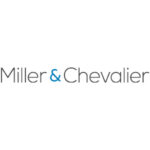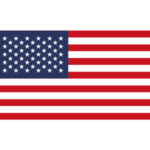

On January 25, 2024, the Federal Trade Commission (FTC) announced a $2 million civil fine against a farm equipment company for violating the FTC’s Made in USA (MUSA) rule, the largest fine for violations. of MUSA to date. Here is what you need to know:
FTC Made in USA Rule
- The FTC regulates US origin claims in advertising and labeling under Section 5 of the FTC Act, which prohibits “unfair or deceptive acts or practices.” Claims of American origin may be expressed (e.g., “Made in the USA” or “Made in the United States”) or implied, that is, specific to the context and generally involving the use of American symbols, such as flags or references to US locations
- The MUSA Rule prohibits unqualified claims that a product, service, or component is manufactured in the U.S. unless: (1) final assembly or processing occurs in the U.S.; (2) all significant processing performed on the product occurs in the U.S.; and (3) all or substantially all ingredients or components are manufactured and sourced in the U.S. Both express representations that the products are “made,” “manufactured,” or “constructed” in the U.S. and representations implied fall within the scope of the Rule.
- The FTC began imposing larger civil penalties in 2020, indicating that violations of the MUSA Rule would face stricter enforcement. Although the FTC’s enforcement of MUSA violations remains slow (the FTC only brought four cases in 2023 that resulted in monetary penalties), this is the second sanction against a publicly traded company since 2020.
The order.
According to the FTC complaint, the farm machinery company labeled thousands of separately sold replacement parts for its products as “Made in the USA,” even though they were manufactured entirely outside the U.S. since at least 2021, the company allegedly packaged parts manufactured abroad. products in boxes with “Made in USA” printed.
The company is a repeat violator of the MUSA Rule. In 1999, the company entered into an Order with the FTC for MUSA violations, which expired in 2019. This prior application indicates that the manufacturer was aware of the MUSA Rule but failed to comply with it.
Under the latest Order, the company owes a $2 million civil penalty. The Order also requires the company to cease its deceptive labeling practices and creates compliance monitoring and recordkeeping and reporting obligations for the company.
Food for take away
Consider “qualified” MUSA claims . Given the very high standard applicable to non-qualified US origin claims and the increasingly real risk of financial penalties for non-compliance, the use of qualified US origin claims is sometimes more appropriate and worth considering. Examples of permitted qualified claims include: (1) claims indicating the existence of foreign content (“Made in the USA with American and Turkish parts”); (2) claims specifying the amount of US content (“50% US content”); and (3) statements indicating the presence of imported parts (“Made in the USA from imported cotton”).
We hope that the real threat of sanctions will encourage others to report false or misleading claims about American origin. If companies are concerned that their competitors are engaging in deceptive labeling practices, they can file complaints with the FTC. The FTC prioritizes enforcement against willful, repeat, or egregious violators.
For more information contact:

Jeffrey Lehman | Partner Miller & Chevalier | jlehtman@milchev.com




